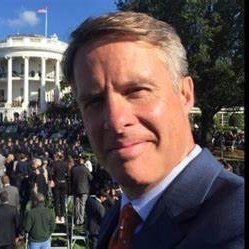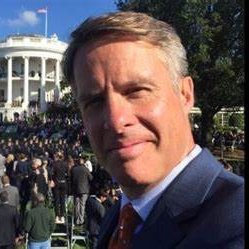ABC News Suspends Terry Moran for Calling Stephen Miller a “Hater”
Terry Moran’s Suspension from ABC news: Understanding the Controversy
In recent news, Terry Moran, a prominent journalist and anchor at ABC News, was suspended following a controversial tweet in which he described Stephen Miller, a senior advisor to former President Donald trump, as a "world-class hater." This incident has sparked significant discussion among media commentators, political analysts, and the general public, raising questions about journalistic integrity, bias, and the role of social media in news reporting.
Background on Terry Moran
Terry Moran is well-known for his extensive career in journalism, particularly for his roles at ABC News. He has covered major national and international events, earning a reputation for his insightful reporting and in-depth interviews. Moran’s tweet regarding Stephen Miller, however, has put his career in the spotlight, leading to his suspension. The tweet was perceived by some as crossing the line between reporting and personal opinion, thus igniting a debate on the boundaries of journalism.
The Tweet That Sparked Outrage
Moran’s tweet, in which he labeled Stephen Miller a "world-class hater," was met with mixed reactions. Supporters of Moran argue that his comments reflect legitimate criticism of Miller’s policies and rhetoric, particularly regarding immigration and race. Critics, however, contend that such language is unprofessional for a journalist and undermines the credibility of news organizations.
The Role of Social Media in Journalism
The incident involving Terry Moran highlights a broader issue regarding the influence of social media on journalism. In today’s digital age, journalists often use platforms like Twitter to express their opinions, share news, and engage with audiences. While social media can enhance communication and allow for real-time updates, it also poses challenges for maintaining professionalism and objectivity.
- YOU MAY ALSO LIKE TO WATCH THIS TRENDING STORY ON YOUTUBE. Waverly Hills Hospital's Horror Story: The Most Haunted Room 502
Moran’s suspension raises questions about how media organizations should handle social media interactions by their employees. Should journalists be allowed to express personal opinions on social media, or should they adhere to strict guidelines that prioritize impartiality? This dilemma is increasingly relevant as the line between personal and professional opinions continues to blur.
Support for Terry Moran
In the wake of his suspension, many journalists and media professionals have rallied behind Moran, expressing their support through social media. The hashtag “Drop a for @TerryMoran” encourages fans and supporters to show their solidarity. This outpouring of support reflects a growing sentiment among journalists who believe in the importance of free expression, even in the face of institutional pushback.
Supporters argue that Moran’s comments, while strong, are indicative of the frustrations many feel towards figures like Stephen Miller, whose controversial policies have drawn widespread criticism. Furthermore, they assert that journalists should have the freedom to express their views, especially when it comes to topics that resonate deeply with the public.
The Impact of the Suspension
Moran’s suspension has not only affected his career but has also prompted discussions about accountability within media organizations. Critics argue that suspending a journalist for expressing a personal opinion is an overreach that stifles free speech. On the other hand, proponents of the suspension claim it is necessary to maintain the integrity of the news organization and ensure that journalists remain objective in their reporting.
The suspension could have lasting implications for Moran’s career, as well as for ABC News as a whole. It may lead to increased scrutiny of the organization’s policies regarding social media use and the expression of personal opinions by journalists. Additionally, it may set a precedent for how similar situations are handled in the future.
The Broader Context of Media Bias
This incident also ties into larger conversations about media bias and the perception of news organizations. Many individuals believe that mainstream media outlets have a liberal bias, which can influence their reporting. Moran’s tweet and subsequent suspension have reignited debates about the objectivity of journalists and the extent to which personal beliefs should impact their work.
As audiences become increasingly polarized, the challenge for news organizations is to maintain credibility and trust with viewers. Incidents like Moran’s suspension can exacerbate existing divisions and lead to further skepticism regarding news coverage.
The Future of Journalism
As the media landscape continues to evolve, the challenges faced by journalists like Terry Moran will likely persist. The rise of social media and the increasing polarization of political discourse have created a complex environment for reporters. Moving forward, it will be crucial for journalists and news organizations to navigate these challenges while upholding the principles of ethical reporting.
In conclusion, Terry Moran’s suspension from ABC News serves as a case study in the intersection of journalism, social media, and personal expression. While the incident has sparked heated debates about bias and integrity, it also highlights the ongoing struggles faced by journalists in a rapidly changing media landscape. The support for Moran underscores a desire for greater freedom of expression within the profession, challenging traditional norms and inviting broader discussions about the future of journalism and its role in society.

Terry Moran was suspended at ABC News after posting Stephen Miller is a “world-class hater.”
Drop a for @TerryMoran! Let’s show him our support. https://t.co/kxVmVvycFn

Terry Moran was suspended at ABC News after posting Stephen Miller is a “world-class hater.”
Media personalities often find themselves at the center of controversy, and Terry Moran is no exception. Recently, he was suspended from ABC News following a tweet where he referred to Stephen Miller as a “world-class hater.” The implications of this suspension are far-reaching, not just for Moran, but also for the landscape of political discourse in media. So, what exactly happened, and why should we care? Let’s dive in.
Understanding the Context of the Suspension
Terry Moran, a veteran journalist and ABC News correspondent, has a long history of reporting on significant political events. His tweet about Stephen Miller, a former senior advisor to Donald Trump, was a part of a broader conversation about the current political climate in the United States. The accusation that Miller is a “world-class hater” stems from his controversial policies and statements regarding immigration and other social issues. This kind of language is not new in political discussions, but its public airing by a prominent journalist raised eyebrows at ABC News.
The Reaction to Moran’s Tweet
The immediate aftermath of the tweet saw a mix of support and criticism. Many people stood by Moran, seeing his words as a necessary critique of Miller’s polarizing rhetoric. Supporters even encouraged others to drop a for @TerryMoran to show solidarity. On the flip side, critics argued that as a journalist, Moran should maintain a level of impartiality and refrain from using such charged language. This debate highlights the tightrope journalists walk between personal beliefs and professional responsibilities.
What Does This Mean for ABC News?
ABC News has a reputation to uphold, and suspending Moran sends a clear message about the network’s stance on impartiality. The decision to suspend him was likely influenced by internal policies that prioritize maintaining a neutral front in political commentary. This raises questions about how media organizations balance personal expression with professional conduct, especially in an era where social media can amplify every opinion.
The Broader Implications for Journalistic Integrity
The suspension of Terry Moran also opens the floor for a larger discussion about journalistic integrity in the digital age. With social media platforms becoming a primary source of news and opinion, journalists are increasingly using these channels to express their thoughts. The challenge lies in navigating the fine line between personal opinion and professional reporting. As audiences, we must ask ourselves – can journalists express their viewpoints while still being trusted as unbiased sources of information?
Public Support for Moran
The call to drop a for @TerryMoran is a testament to how much his audience values his work and perspective. It signifies a growing trend where audiences rally behind media figures who they believe are speaking truthfully, even if that truth is uncomfortable. This kind of public support can be crucial for journalists facing backlash for their opinions, especially in a political landscape that often feels divided.
The Future of Journalism in a Polarized World
As we move forward, the question remains: how will journalism evolve in such a polarized environment? Will networks like ABC News continue to impose strict guidelines on their employees, or will there be a shift towards allowing more personal expression? It’s a delicate balance, and one that will likely continue to develop as the media landscape changes.
Conclusion: Embracing Change in Media
In the end, the situation with Terry Moran serves as a reminder that media personalities are not just reporters; they are also individuals with strong opinions and beliefs. As audiences, we must consider the implications of their words and actions while also advocating for a media landscape that values both integrity and authenticity. The conversation surrounding Moran’s suspension is far from over, and it will be interesting to see how it influences future discussions about the role of journalists in today’s society.
So, whether you agree or disagree with Moran’s stance, one thing is clear: the dialogue around media representation, journalistic integrity, and personal expression is more important than ever.

